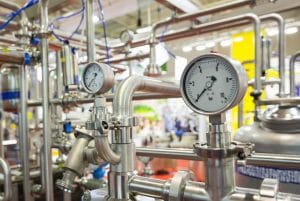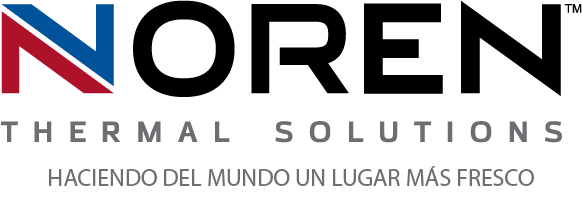 When it comes to modern electrical cooling and thermal management solutions, heat exchangers are often the optimal solution for a wide range of applications. For instance, they’ve long been recognized as a more affordable, efficient, and reliable alternative to cumbersome solutions such as air conditioners. More recently, their eco-friendly and nearly automated functions have made heat exchangers the preferred electrical cooling solution for increasingly more advanced applications. However, they’ve also become popular solutions for applications beyond cooling electrical control panels and other enclosures. With their ability to successfully absorb and transfer large amounts of heat without allowing for any notable rises in temperature, and without requiring exorbitant amounts of energy, heat exchangers have become ideal solutions for thermal management applications of all types.
When it comes to modern electrical cooling and thermal management solutions, heat exchangers are often the optimal solution for a wide range of applications. For instance, they’ve long been recognized as a more affordable, efficient, and reliable alternative to cumbersome solutions such as air conditioners. More recently, their eco-friendly and nearly automated functions have made heat exchangers the preferred electrical cooling solution for increasingly more advanced applications. However, they’ve also become popular solutions for applications beyond cooling electrical control panels and other enclosures. With their ability to successfully absorb and transfer large amounts of heat without allowing for any notable rises in temperature, and without requiring exorbitant amounts of energy, heat exchangers have become ideal solutions for thermal management applications of all types.
Streamline wastewater treatment processes
Wastewater treatment is one of the first applications outside of electrical cooling where heat exchangers made a significant impact. As part of the widespread push toward greener manufacturing and production processes, and more eco-friendly operations overall, companies have implemented in-house treatment processes to reduce environmental impacts of the wastewater they produce. These processes involve introducing beneficial microbes that attack and neutralize harmful, hazardous substances in the water, and applying sustained heat to keep the water at consistent temperatures. Heat exchangers are commonly implemented to utilize electrical waste heat as a source for facilitating wastewater treatment.
Vastly improve quality in the molding industry
In more industry-specific applications, heat exchanger technology is often customized to meet highly unique, specialized thermal management needs. For example, in the molding industry, transferring heat is essential to the production process, and the quality of the solutions used to transfer that heat has a direct impact on the quality of what’s produced. The ability to keep heat circulating efficiently and reliably is one reason why specialized heat exchangers (known as thermal pins) are often utilized for the molding process. In addition to being more efficient, thermal pins are isothermal, which means they remove heat evenly and uniformly to avoid any errors and malformations in final molds.
Make food pasteurization safer and more efficient
Molding isn’t the only industry whose production process relies on efficient heat transfer and control. In the food and beverage industry, for example, pasteurization is vital to keeping perishable products safe for consumption. Pasteurization also requires highly specific and accurately sustained thermal management, and heat exchangers are growing in popularity as a solution for food and beverage companies to streamline their entire processes. Introducing heat exchangers not only helps improve efficiency and reliability, but also the safety of products by helping equipment maintain an exceptionally high level of ingress protection.
For more information about what heat exchangers can do besides improve electrical cooling, call Noren Thermal Solutions in Taylor, TX, at 866-936-6736.







